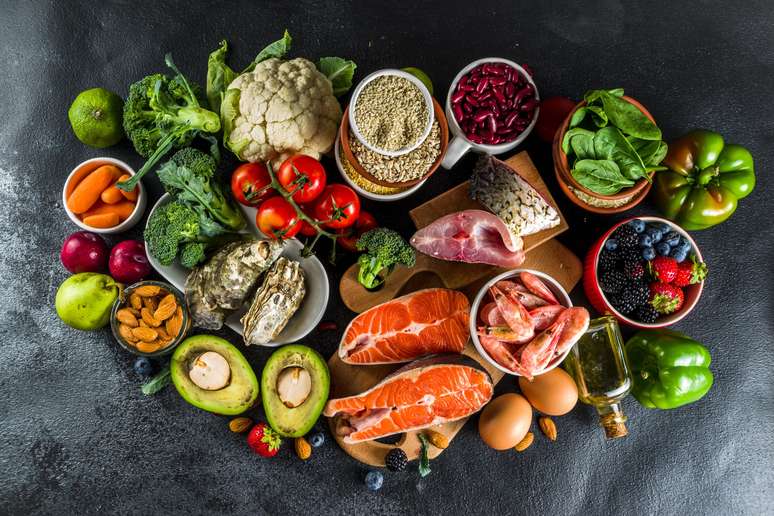Discover the benefits of this lifestyle for health and the environment
A pescatarian is someone who adds fish and seafood to their vegetarian diet. There are many reasons why people choose to give up meat and poultry but continue to eat everything that comes from the sea.
Some choose this lifestyle so they can get the health benefits of a plant-based diet and eating heart-healthy fish. Other people make the choice to try to reduce their environmental impact. And there are those who are pescatarian simply as a matter of taste. See below the advantages and disadvantages of this type of diet.
What is a pescetarian?
Simply put, it’s someone who doesn’t eat meat, but eats fish. The term pescetarian (or piscitario, also used) was coined in the early 1990s and is a combination of the Italian word for fish, “pesce”, and the word “vegetarian”. In scientific literature this diet is often called “pesco-vegetarian” and falls within the spectrum of vegetarianism. According to this definition, a pescetarian is someone who chooses a vegetarian diet but who also eats fish and other seafood.
This is a largely plant-based diet, made up of whole grains, nuts, legumes and healthy fats, with fish and seafood playing a key role as the main source of protein. Many pescatarians also eat dairy products and eggs.
Why do people choose a pescatarian diet? There are several reasons, below are some of the main ones.
Health benefits
There are many proven benefits of plant-based diets, including a lower risk of obesity and chronic diseases such as heart disease and diabetes. According to research, you can also get many of these protective benefits from a pescatarian diet.
One study found that pescatarian women gained less weight each year than women who ate meat. And people who changed their diet to a plant-based one also gained less weight, proving that reducing meat consumption can be good for you, regardless of your current eating patterns.
Another study concluded that pescatarians had a lower risk (4.8%) of developing diabetes, compared to omnivores (7.6%). Additionally, one large study looked at people who rarely ate meat or were pescatarians. They had a 22% lower risk of dying from heart disease than those who ate meat regularly.
Environmental impact
Raising livestock has a high environmental cost. According to the United Nations, livestock contributes 15% of all human-caused carbon emissions. In contrast, the production of fish and seafood has a lower carbon footprint than the production of any type of animal meat or cheese. A 2014 study calculated that the diets of those who ate fish caused 46% fewer greenhouse gas emissions than the diets of those who ate at least one serving of meat per day.
Ethical reasons
Ethics may be one of the main reasons why people choose to become vegetarians. It could be one of the main reasons for pescatarians too. Some of the ethical reasons why people choose not to eat meat include:
- Against slaughter: they don’t want to kill animals for food.
- Inhumane industrial practices: they refuse to support factory farms that raise livestock in inhumane conditions.
- Bad working conditions: they refuse to support factory farms that present terrible conditions for their workers.
- Humanitarian reasons: they consider the production of cereals for animal feed to be an unfair use of land and resources when there is so much hunger in the world.
Eliminating land animals from the diet addresses some of these ethical concerns. That said, aquaculture and overfishing can also be problematic. In the United States, for example, the Monterey Bay Aquarium’s seafood viewing program is an excellent resource for finding ethically caught or raised fish.
What do Pescatarians eat?
A typical pescatarian diet is primarily vegetarian with added seafood. Pescatarians typically eat:
-Whole grains and products made with them
-Vegetables and their products, including beans, lentils, tofu and hummus
-Nuts and nut butters, peanuts and seeds
-Seeds, including chia and flax seeds
-Dairy products, including yogurt, milk and cheese
-Fruit
-Vegetables
-Fish and shellfish
-Egg
Pisces people don’t eat
-Beef
-Chicken
-Pig
-Lamb
-Peru
-Game meat
More variety
Adding fish to a vegetarian diet has many health benefits. Many people fear that by completely cutting out animal products or avoiding animal meat, they may be deficient in some essential nutrients. In particular, vitamins B12, zinc, calcium, and protein may be a little more difficult to obtain on a vegetarian diet. Adding seafood, including fish, crustaceans, and molluscs to a vegetarian diet can provide beneficial nutrients and variety.
More omega-3s
Fish is the best way to get omega-3 fatty acids. Some plant foods, including walnuts and flaxseeds, contain alpha-linolenic acid (ALA), a type of omega-3 fat. However, this type of ALA is not easily converted to eicosapentaenoic acid (EPA) and docosahexaenoic acid (DHA) in the body. DHA and EPA provide additional health benefits, helping not only the heart, but also brain function and mood. In contrast, fatty fish, such as salmon and sardines, contain EPA and DHA.
Protein intake
Humans need about 0.8 grams of protein per 1 kg of body weight per day to stay healthy. That’s about 54 grams for a 68kg person. However, many people prefer to eat more of it. It can be difficult to achieve a high-protein diet simply by eating vegetables, especially if you don’t want extra carbs or fat. Fish and seafood offer an excellent source of lean protein.
In addition to omega-3s and protein, seafood is rich in many other nutrients. For example, oysters are extremely rich in vitamin B12, zinc and selenium. A single oyster provides 133% of the recommended daily allowance (RDI) of vitamin B12 and 55% of the RDI of zinc and selenium.
Mussels are also very rich in vitamin B12 and selenium, as well as manganese and other B vitamins. White fish varieties, such as cod and sole, do not provide many omega-3 fats, but are an extremely lean source of proteins.
For example, just 85 grams of cod provides 19 grams of protein and less than one gram of fat. Cod is also an excellent source of selenium and a good source of phosphorus, niacin and vitamins B6 and B12.
Disadvantages of the diet
There are not many health disadvantages to this diet. That said, some people may be more vulnerable to high fish consumption. Especially larger species can contain mercury and other toxins. For this reason, the United States Food and Drug Administration (FDA) recommends that children and women of reproductive age, especially pregnant and breastfeeding women, avoid potato fish, swordfish, shark (dogfish) and the mackerel. They should also limit albacore and yellowfin tuna to one palm-sized portion or less per week. Light tuna has a low mercury content and can be consumed in 2 to 3 servings per week.
Since this diet is primarily vegetarian, it is subject to a few other pitfalls. For example, it can be easy to overeat carbohydrates, especially if you eat a lot of processed grains. So, be careful what you put on your plate.
Source: Healthline
Source: Terra
Ben Stock is a lifestyle journalist and author at Gossipify. He writes about topics such as health, wellness, travel, food and home decor. He provides practical advice and inspiration to improve well-being, keeps readers up to date with latest lifestyle news and trends, known for his engaging writing style, in-depth analysis and unique perspectives.








